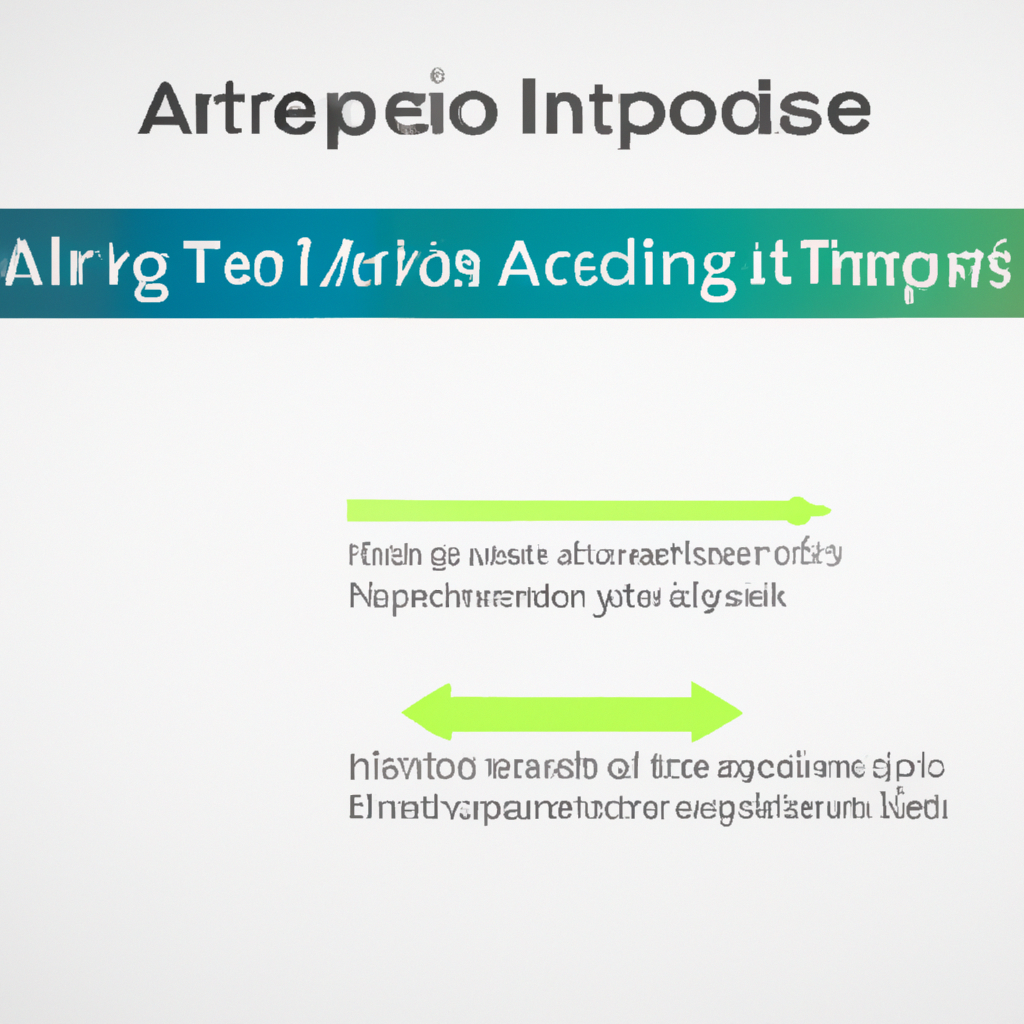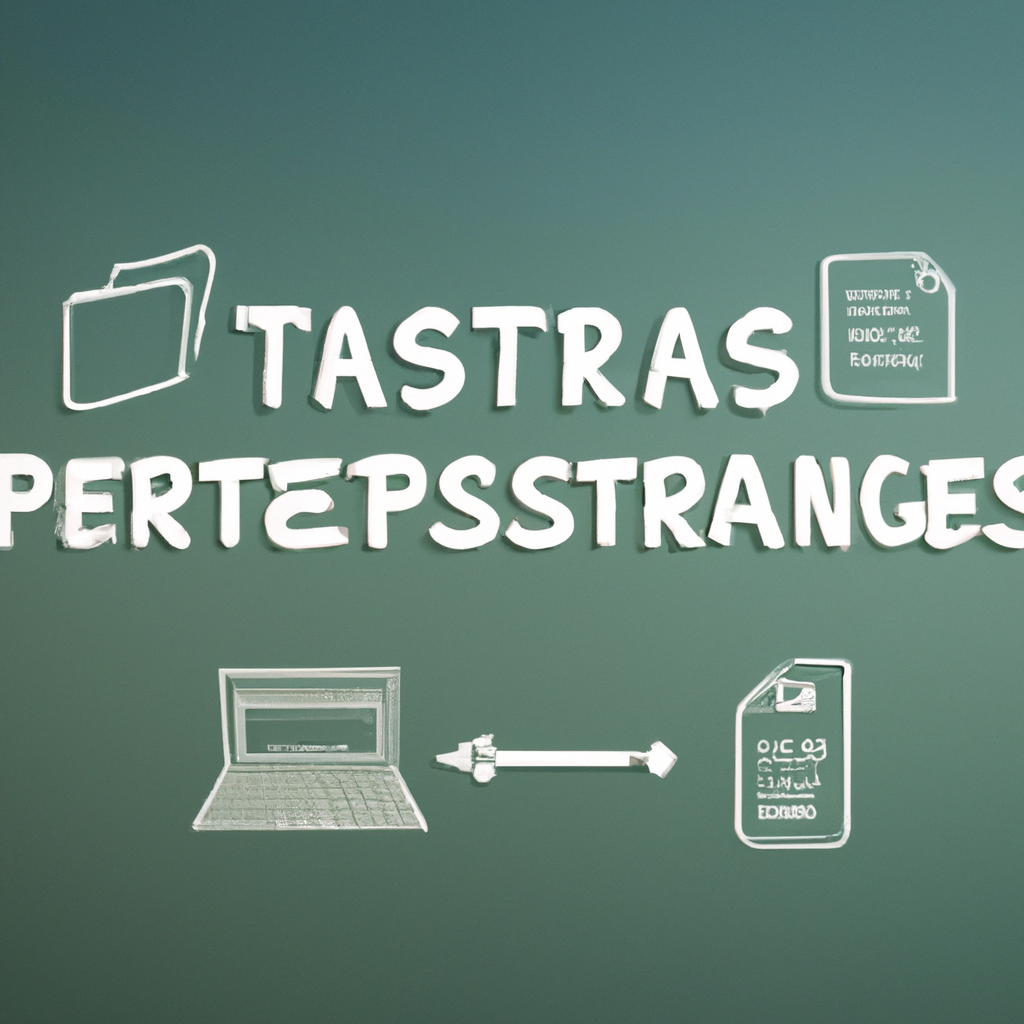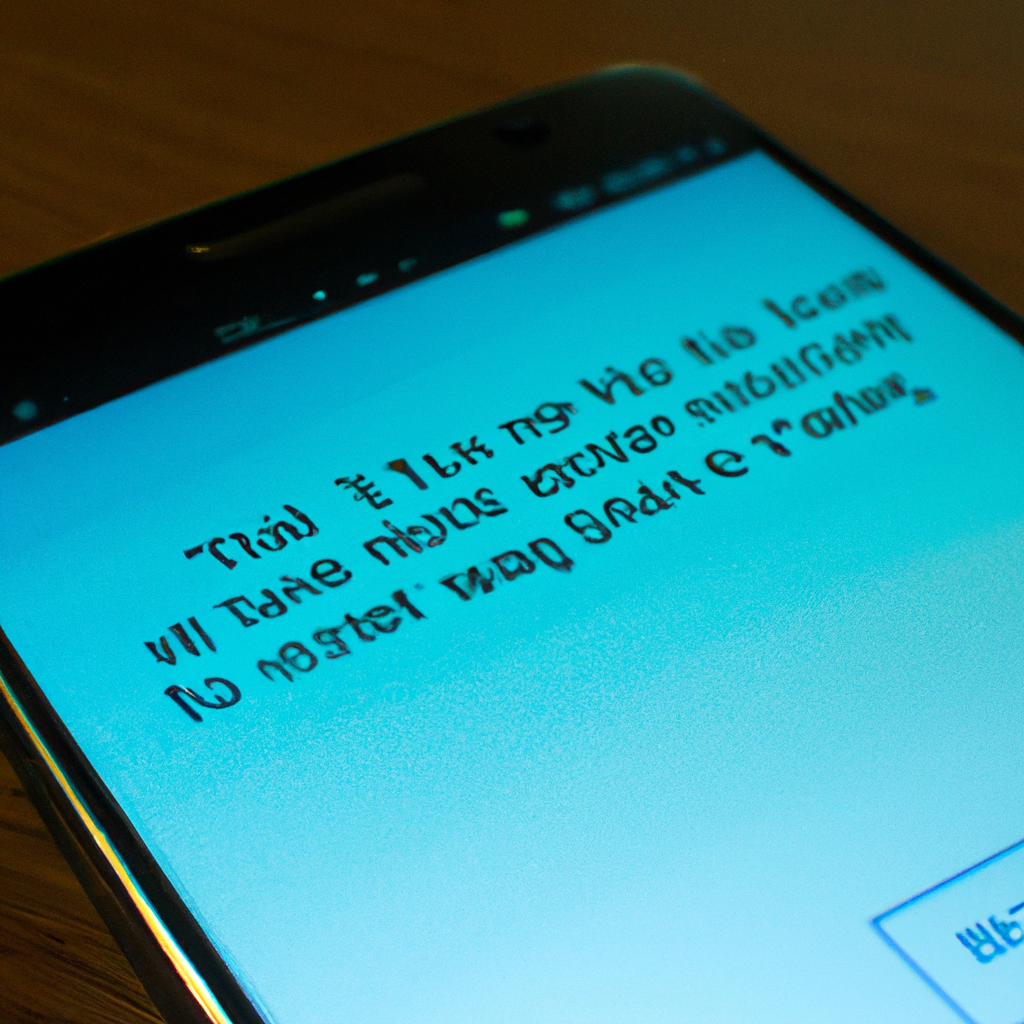From the pulsating realm of technology, where innovation reigns supreme, arises an age-old dilemma that has plagued tech enthusiasts and smartphone loyalists alike: How long does it really take to transfer your cherished Android universe to the captivating realm of iPhone? As the clash of these two giants steps into the limelight, we embark on a quest to unravel this enigma, shedding light on the intricate art of transitioning from Android to iPhone. So, fasten your seatbelts as we dive into the depths of cross-platform migration, unlocking secrets and unveiling the truth behind this exhilarating metamorphosis.
Table of Contents
- Time required for transferring Android data to iPhone: A detailed exploration
- Factors influencing the duration of transferring Android data to iPhone
- Understanding the complexities: What slows down the transfer process
- Optimizing the transfer process: Recommendations for a quicker transition
- Ensuring a seamless transfer: Best practices to save time and prevent data loss
- Q&A
- The Conclusion

Time required for transferring Android data to iPhone: A detailed exploration
Embarking on the journey of transferring your Android data to an iPhone may seem like a daunting task, but fear not! We are here to guide you through the process and provide a detailed exploration of the time required to accomplish this feat.
Android to iPhone Data Transfer Time:
1. Contacts: Transferring your contacts from Android to iPhone is a breeze. With the help of various transfer tools, you can easily migrate your contacts within minutes. Say goodbye to the days of manually typing in each phone number!
2. Photos and Videos: Depending on the size of your multimedia files, the transfer time may vary. Large albums or videos can take a bit longer, but thanks to advanced technology, the process is still remarkably swift. So, sit back, relax, and let your precious memories seamlessly transfer to your new iPhone.
3. Messages and Call History: Moving your text messages and call history from Android to iPhone requires a more comprehensive approach. Various applications and tools exist to facilitate this transfer, but it may take some time to ensure all your valuable conversations are smoothly moved to your new device.
4. Apps and App Data: Unfortunately, transferring your Android apps and their associated data to an iPhone is not a straightforward task due to differences in the operating systems. However, fret not! With a little patience, you can manually re-download your favorite apps from the App Store and sign in to retrieve your saved data, if supported.
5. Other Data: Additional data like calendars, notes, and bookmarks can effortlessly be transferred using built-in tools or third-party applications. The time required for this transfer largely depends on the quantity and complexity of your data; however, in most cases, it should not take more than a few minutes.
So, there you have it! With the right tools and a bit of patience, transferring your Android data to an iPhone is an achievable task. Remember, the time required for each data type may vary, but rest assured, this switch is well within your grasp.

Factors influencing the duration of transferring Android data to iPhone
When transferring Android data to iPhone, several factors can significantly affect the duration of the process. These factors play a crucial role in determining how long it will take for your data to be successfully migrated and accessible on your new iPhone. It is essential to consider these aspects to ensure a smooth and efficient transfer:
1. Amount of Data: The total size of the data you are transferring is a significant factor in determining the duration of the process. The more data you have, the longer it will take to transfer. This includes contacts, messages, photos, videos, apps, and any other files stored on your Android device.
2. Network Speed: The speed of your internet connection affects how quickly your data can be transferred. If you have a fast and stable internet connection, the transfer process is likely to be quicker. On the other hand, a slow or unstable connection may prolong the duration of the transfer.

Understanding the complexities: What slows down the transfer process
Transferring data from one system to another can sometimes feel like unraveling a tangled web of complexities. It’s like trying to navigate through a labyrinth where unexpected obstacles and bottlenecks seem to slow down the process. Let’s dive into some of the main culprits behind these delays:
- Data compatibility: Incompatible data formats can create significant roadblocks during transfers. When systems don’t speak the same language, attempts to move data from one to another can result in confusing jargon, lost information, or even complete data corruption. Finding common ground becomes crucial for successful transfers.
- Data volume: When dealing with massive amounts of data, speed bumps can become more pronounced. Large datasets take longer to transfer, increasing the chances of interruptions or errors along the way. Efficient methods for handling and compressing data become instrumental in preventing unnecessary slowdowns.
- Data integrity: Maintaining data quality is another critical factor that contributes to transfer sluggishness. Data inconsistencies, duplicates, and errors can cause headaches during the transfer process. Ensuring clean and accurate data at the source can help avoid costly delays.
Unraveling these intricacies and pinpointing what slows down the transfer process lays the foundation for developing effective strategies. By overcoming these hurdles, we can streamline transfers, minimize downtime, and establish a smoother workflow for data migration and integration.

Optimizing the transfer process: Recommendations for a quicker transition
A seamless transfer process can significantly enhance your overall productivity and efficiency. To help you achieve a quick and hassle-free transition, we’ve compiled a list of recommendations that will streamline the transfer process:
1. Assess and consolidate:
- Thoroughly evaluate your current systems and identify any inefficiencies that may hamper the transfer process.
- Consolidate your data and streamline storage to minimize the time spent searching for information during and post-transfer.
- Prioritize and organize your resources based on importance, ensuring a smooth transition of critical assets.
2. Plan and communicate:
- Create a detailed step-by-step plan outlining the transfer process, including timelines, responsibilities, and contingencies for potential roadblocks.
- Ensure clear communication channels with all stakeholders involved, providing updates and addressing any concerns promptly.
- Hold regular meetings to discuss progress, clarify expectations, and gather feedback for continuous improvement.
By implementing these recommendations, you can expedite the transfer process and minimize any disruptions that may arise. Remember, a well-optimized transfer process not only saves time but also sets the foundation for successful outcomes in your new environment.

Ensuring a seamless transfer: Best practices to save time and prevent data loss
When it comes to transferring data, time is precious, and losing valuable information is a nightmare no one wants to experience. Fortunately, there are tried and tested best practices that can make your transfer process seamless and efficient. By following these guidelines, you can save precious time and ensure that no data is lost along the way.
Backup, backup, backup: Before initiating any transfer, it is crucial to create a comprehensive backup of all your important files and data. This simple step acts as a safety net, ensuring that even if something goes wrong during the transfer process, your data remains intact and recoverable. Remember, it’s always better to be safe than sorry!
Organize and categorize: Prior to the transfer, take the time to organize your data and categorize it into easily identifiable folders. This will not only make the transfer process smoother but also simplify the post-transfer retrieval. By adopting a structured approach, you’ll be able to locate specific files quickly, saving you precious time and minimizing the chances of errors or data loss.
Q&A
Q: How Long Does It Take to Transfer Android to iPhone?
A: Unveiling the Speedy Journey of Your Digital Migration!
Q: I’ve finally made the leap from Android to iPhone! But how long will it take to transfer all my precious data?
A: Fear not, dear explorer, for your crossing will be swift and seamless!
Q: Can you give me an estimate of the time it’ll take to complete the transfer process?
A: Though each migration is unique, the average time for this extraordinary journey ranges between minutes and hours.
Q: What factors might influence the duration of the transfer?
A: The vastness of your digital realm and the speed of your internet connection may impact the length of your expedition.
Q: Are there any tools or techniques that can expedite the transfer?
A: Magical instruments, such as software built specifically for this purpose, may dramatically accelerate your transition.
Q: Will I have to manually transfer each and every file from my Android device to the iPhone?
A: Fret not, dear nomad. The digital gods have gifted us with intelligent tools that can efficiently migrate your cherished files, documents, contacts, and multimedia in just a few simple steps.
Q: What about my cherished collection of photos and videos? Can they be transferred effortlessly?
A: Indeed! These treasured memories can journey across platforms, undeterred by technological barriers, preserving your digital legacy.
Q: Will I have to say farewell to my beloved apps and their data during this migration?
A: Nay, for the app deities have blessed us with ingenious solutions! A host of applications exist to transfer not only the apps themselves but also their accompanying data.
Q: Is the process as colossally complex as it seems, or will it be a smooth and harmonious passage?
A: Rest assured, ardent explorer, for this odyssey is crafted to be user-friendly, ensuring a serene traverse through the vast digital seas.
Q: Can I monitor the progress of the transfer in real-time?
A: Truly, the great digital guardians have provided us with progress bars and status updates, offering solace and tranquility throughout the expedition.
Q: Are there any precautions I must undertake before embarking on this adventure?
A: A wise adventurer always prepares for the unexpected. Backing up your Android device and ensuring sufficient storage on your iPhone are valuable tasks.
Q: Is there any final advice you can bestow upon us before setting sail on this magnificent voyage?
A: Remain patient, courageous explorer, and trust in the power of technology. With perseverance and an adventurous spirit, your migration will be complete in no time!
Q: Thank you for guiding us through this marvelous migration journey! Any parting words of wisdom?
A: Embrace change, dear traveler, for it is through the exploration of new realms that the true wonders of technology reveal themselves! Bon voyage on your Android to iPhone transfer expedition!
To Conclude
As we wrap up our journey into the intricacies of transferring Android to iPhone, it’s time to bid adieu to the world of data migration. We hope this article has shed some light on the process, unraveling the mysteries that often surround such technological transitions.
Remember, the length of time it takes to transfer Android to iPhone largely depends on various factors, such as the amount of data you wish to transfer, your internet connection, and the specific methods you choose to employ. So, don’t fret if it’s not an instantaneous process!
But in the end, this journey is not merely about transferring files and apps. It’s about embarking on a new phone adventure, unlocking fresh possibilities with your shiny iPhone. Embrace the change, for it signifies growth and exploration.
So, whether you bid farewell to your trusty old Android or warmly welcome your new iOS companion, may your transition be smooth and seamless. Happy exploring, dear readers, as you navigate the exciting realm of your brand-new iPhone!

